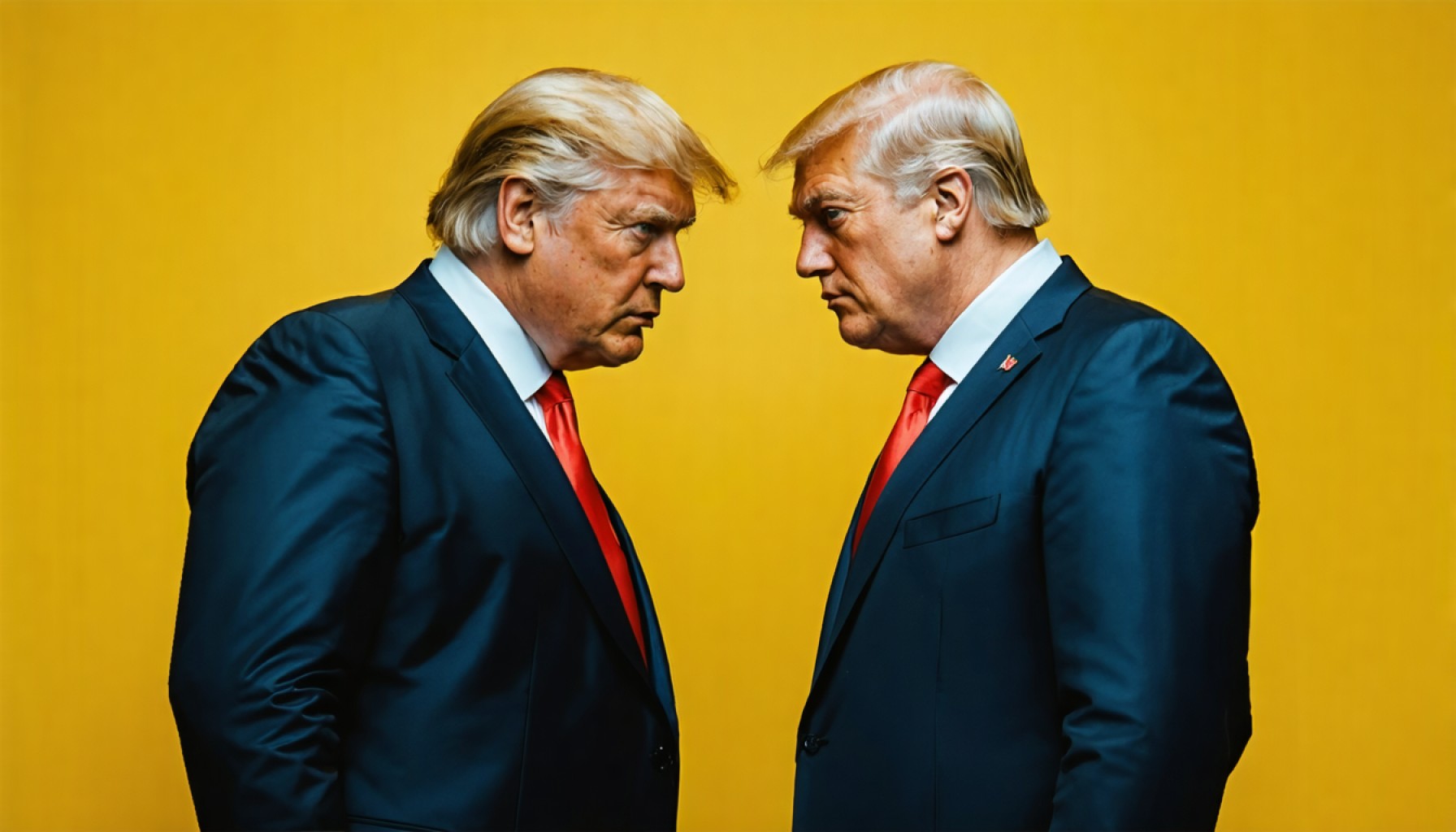- Germany gears up for a significant political contest between Friedrich Merz and Chancellor Olaf Scholz, highlighting contrasting leadership styles.
- Friedrich Merz, a strategic figure from the Union, seeks to capitalize on his entrepreneurial experience and current poll lead.
- Olaf Scholz, the current chancellor, draws on his extensive political background as a federal minister and former Hamburg mayor, showing renewed vigor in his campaign.
- Both leaders’ campaigns reflect their distinct paths and ambitions, each aiming to influence Germany’s political direction.
- The political landscape is marked by questions surrounding each candidate’s potential impact on Germany’s future and whether Merz’s poll advantage will hold amid electoral challenges.
- The rhetoric and narratives of this political duel underscore themes of ambition, resilience, and the shaping of political legacies.
A volatile wind stirs the air as Germany braces for yet another political duel, showcasing two contenders as different as night and day. On one side stands Friedrich Merz, the Union’s shrewd strategist, whose ambitions illuminate the autumn of 2024. His rival, Olaf Scholz, the current chancellor, maneuvers within the turbulent seas of his party’s aspirations, challenged by murmurs of a more pragmatic leader in Boris Pistorius.
As election jitters escalate, the fabric of their campaigns unravels before the nation’s curious eyes. Observers keenly note Merz’s transformation; he sheds impatience for a veneer of statesmanship. Scholz, in contrast, surprises with a newfound vigor, wielding words sharp enough to grasp attention. The kaleidoscope of events captures these contenders in a relentless chase to sway Germany’s future.
The paths that led them here differ dramatically. Scholz’s resume reads like a seasoned statesman’s journal, marked by terms as a federal minister and Hamburg’s mayor. His three years as chancellor, though marred by challenges, add layers to his political tapestry. Meanwhile, Merz, once displaced by none other than Angela Merkel, carved an entrepreneurial legacy before re-embracing politics, ready for his high-stakes performance.
Echoing through election rallies, probing questions hover: What propels these leaders, and how will their triumph or failure shape Germany? Analysts speculate on Merz’s poll lead—can it weather the electoral storm? And for Scholz, the underdog, what unseen reservoirs of resolve can tip the scales by February’s end?
This showdown, rich in contrast and intensity, is not just a contest but a narrative of ambition, resilience, and the quests that define political legacies.
Political Showdown: Will Germany’s 2024 Election Decide Its Future?
How-To Steps & Life Hacks in Political Strategies
1. Mastering Debates:
– Preparation: Research opponent’s past policies and public responses.
– Articulating Policies: Simplify complex ideas for broad voter appeal.
– Body Language: Use confident postures to convey leadership qualities.
2. Building Grassroots Support:
– Engagement: Hold small, personal town hall meetings to connect with voters.
– Social Media: Utilize platforms like Instagram and TikTok for relatable, quick-hit content.
– Volunteers: Deploy a network of volunteers to canvass and spread the message.
Real-World Use Cases
– Friedrich Merz’s Corporate Comeback: Merz used his hiatus from politics to refine his leadership skills in the corporate world, which informed his pragmatic approach upon returning to the political stage.
– Olaf Scholz’s Crisis Management: As chancellor, Scholz’s response to crises like the pandemic reflects his experience-driven, methodical leadership style.
Market Forecasts & Industry Trends
Current trends suggest a shift in voter preferences towards leaders who negotiate both economic stability and social welfare. Analysts predict that climate policy and energy independence will be crucial election issues, emphasizing Germany’s push for renewable energy solutions and tech innovation.
Reviews & Comparisons
– Leadership Comparison:
– Merz: Seen as a reformist with a business-like approach to governance.
– Scholz: Valued for his experience and crisis management skills.
Controversies & Limitations
– Merz: Criticized for a perceived lack of empathy in his economic-focused strategies.
– Scholz: Faces scrutiny over his handling of coalition tensions and EU relations.
Features, Specs & Pricing of Campaign Platforms
– Economic Policies:
– Merz: Advocates for tax reforms and business incentives.
– Scholz: Focus on sustainable growth and welfare programs.
– Social Policies:
– Merz: Intensifies focus on national security and border control.
– Scholz: Promotes inclusive policies supporting immigrants and gender equality.
Security & Sustainability
With cybersecurity threats at the forefront, both candidates underscore the need for robust digital infrastructure. Sustainability initiatives include Merz’s support for innovative energy projects, while Scholz emphasizes green technologies.
Insights & Predictions
Experts believe the election could redefine Germany’s role in Europe. If Merz wins, expect increased focus on fiscal conservatism. Scholz’s victory would likely reinforce the current coalition’s policies with a possible pivot towards social welfare enhancements.
Tutorials & Compatibility
For campaign tech management:
– Platforms: Use tools like NationBuilder for organizing voter outreach.
– Analytics: Implement analytics software to gauge public sentiment and strategize accordingly.
Pros & Cons Overview
Friedrich Merz:
– Pros: Strong economic acumen, charismatic.
– Cons: Viewed as too corporate-focused by some.
Olaf Scholz:
– Pros: Experienced, reliable.
– Cons: May struggle to inspire noticeable change.
Actionable Recommendations
1. Voter Engagement: Attend local political events to hear candidates firsthand.
2. Informed Decisions: Follow credible news sources for balanced perspectives, such as DW or The Guardian.
3. Social Media Literacy: Consider the source and bias of political news and updates before sharing or acting on them.
This election, while layered with historical narratives, is a vibrant opportunity for Germans to shape their democracy actively. Voter consciousness and evidence-based decision-making will be key.
